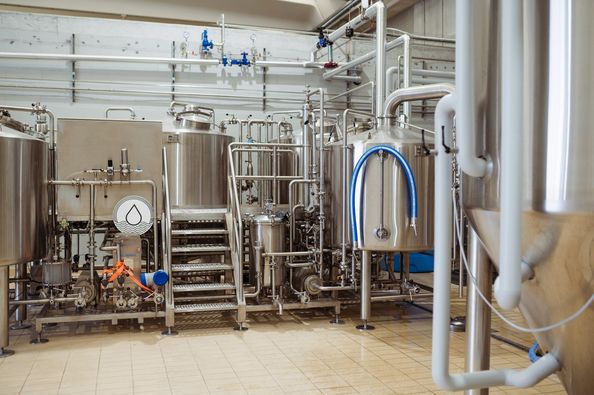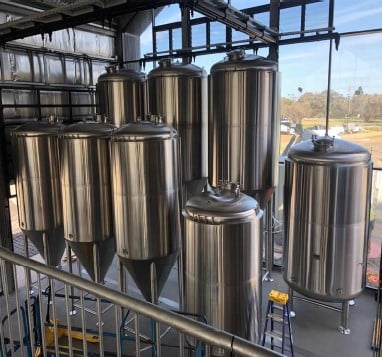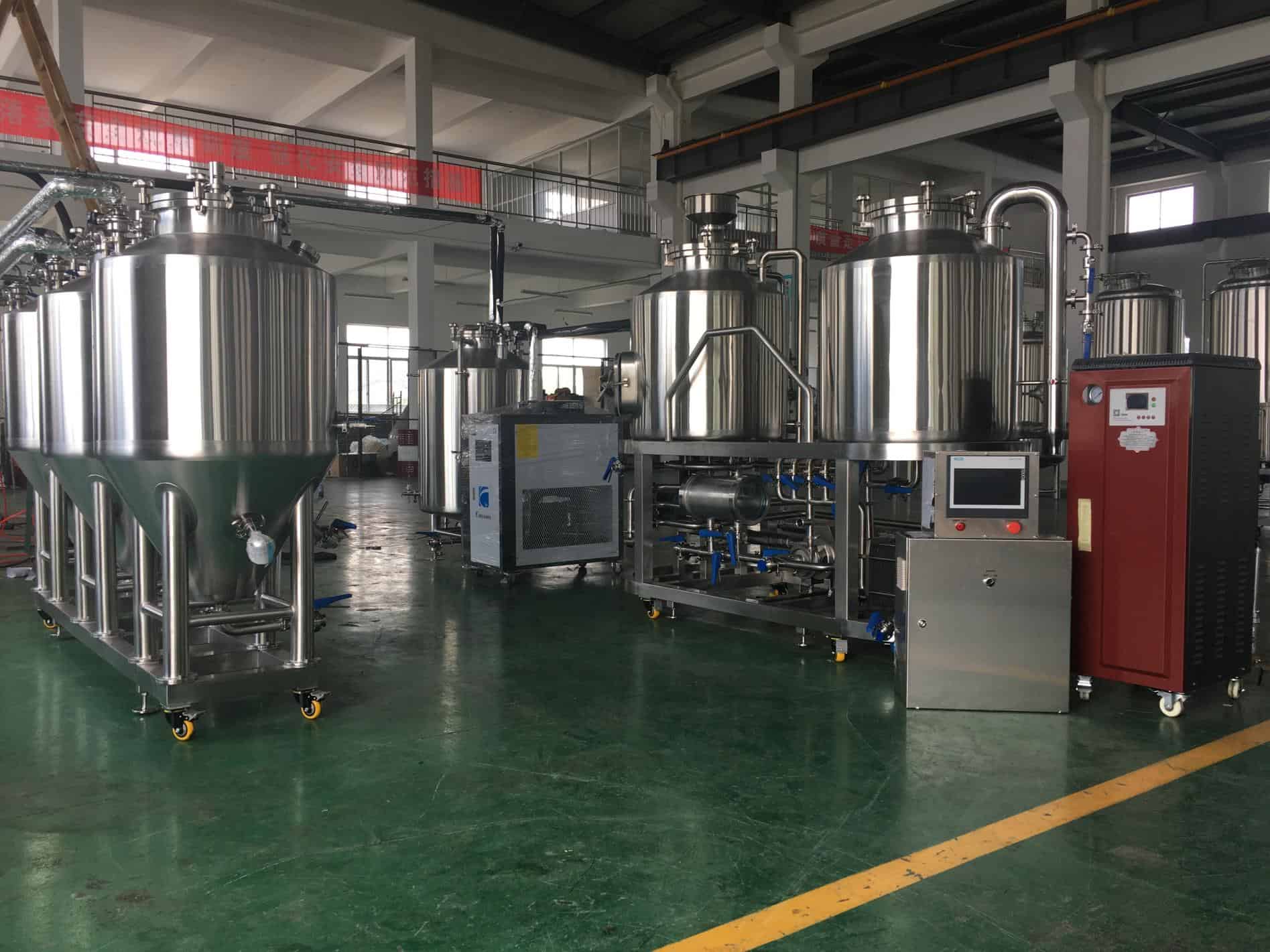The Advantages and Disadvantages of Using a Nano Brewing System
The brewing industry has experienced a significant transformation with the emergence of nano brewing systems. Designed for small-scale production, these systems provide both advantages and disadvantages to consider before implementation. In this in-depth article, we will explore the pros and cons of using a nano brewing system to help you make an informed decision for your brewing business.

The Advantages of Using a Nano Brewing System
Flexibility and Adaptability
Nano brewing systems offer unparalleled flexibility and adaptability, making them particularly attractive to small-scale breweries. These systems allow brewers to experiment with different recipes, ingredients, and brewing techniques with minimal risk. Furthermore, nano brewing systems enable brewers to respond rapidly to changing market trends and customer preferences. However, this adaptability can also present challenges, as breweries may struggle to keep up with increased demand for a popular brew.
Affordability and Lower Operational Costs
Another major advantage of nano brewing systems is their affordability. They typically require a smaller initial capital investment compared to larger brewing equipment. Additionally, the operational costs associated with nano brewing systems are often lower, making them an appealing option for start-ups and small-scale breweries operating on tight budgets. However, it’s essential to remember that the smaller production capacity of nano brewing systems can limit the potential for revenue generation.


Community Involvement and Collaboration
One often overlooked advantage of nano brewing systems is the opportunity for community involvement and collaboration. Small-scale breweries using nano brewing systems can foster strong connections with local communities, suppliers, and other businesses. These relationships can lead to collaborative projects, such as limited-edition brews or events, which can further boost your brewery’s reputation and appeal.
Maintenance and Equipment Care
Regular maintenance is a crucial aspect of any brewing system, and nano brewing systems are no exception. Due to their smaller scale, nano brewing systems may require more frequent and time-consuming maintenance tasks. However, diligent care and proper equipment maintenance can help prolong the life of the system and ensure that the quality of the brews remains consistent. It’s essential to factor in the time and resources required for regular maintenance when considering a nano brewing system.
Marketability and Niche Appeal
Nano brewing systems can offer a unique selling point for small-scale breweries, as they often focus on producing niche or specialty beers. This marketability can help differentiate your brewery from competitors and attract a dedicated customer base. However, it’s important to consider whether the demand for specialty beers in your target market is sufficient to sustain your business in the long term.
The Disadvantages of Using a Nano Brewing System
Limited Production Capacity
One of the primary disadvantages of nano brewing systems is their limited production capacity. Designed for small-scale production, these systems can only produce small batches of beer at a time. This constraint may hinder a brewery’s ability to meet customer demand, particularly if a specific beer becomes popular. Consequently, nano breweries may need to invest in additional equipment or consider scaling up their operations to accommodate growing demand.
Maintenance Requirements
Regular maintenance is essential for any brewing system, and nano brewing systems are no exception. Due to their smaller scale, these systems may require more frequent and time-consuming maintenance tasks. Diligent care and proper equipment maintenance can help prolong the life of the system and maintain the quality of the brews. However, it’s crucial to factor in the time and resources required for regular maintenance when considering a nano brewing system.
Scalability Challenges
While nano brewing systems are an attractive option for start-ups and small-scale breweries, they can pose scalability challenges. As a brewery grows and demand for its products increases, the limited production capacity of a nano brewing system may become a constraint. Expanding operations using a nano brewing system may require significant investment in additional equipment, space, and personnel, potentially negating some of the cost advantages of these systems.
Potential Revenue Limitations
The smaller production capacity of nano brewing systems can also limit a brewery’s potential revenue. Although these systems require lower initial capital investment and have reduced operational costs, their limited output may hinder revenue generation. It’s essential for breweries to consider whether the potential revenue from a nano brewing system will be sufficient to sustain their business in the long term.
Conclusion
Nano brewing systems present an attractive option for small-scale breweries, offering numerous benefits such as flexibility, affordability, and marketability. However, it’s crucial to consider the potential drawbacks, including limited production capacity and maintenance requirements. By carefully weighing the pros and cons, you can make an educated decision about whether a nano brewing system is the right choice for your brewing business.
Thank you for reading this blog about nano brewing system. If you’re looking for a high-quality, durable, and easy-to-use nano brewing system, we recommend the brewing equipment brand Yolong Brewtech. Yolong brewing equipment has a good reputation in the market, and their products’ quality and reliability have stood the test of time. To learn more, visit our product page and browse our brewing system products.
Share this entry
Interested in learning more about Brewing Systems including additional details and pricing information? Please use the form below to contact us!
YOLONG BREWERY EQUIPMENT FAQS
- Commercial Brewery / Craft Brewery / Microbrewery / Nanobrewery
- What is The Difference Between Craft Beer and Industrial Beer?
- The Bespoke Differences In Custom Brewing Systems
- Everything You Need to Know About Kettle Souring
- How to Choose Brewing Equipment for Your business?
- How To Choose The-Best Partner To Build Your Commercial Microbrewing System?
- Two Detection Sensors That You Need To Use In Your Brewhouse System
- Remote Control Applications in Brewing Equipment/How does it work?
- How To Clean Your Brand New Brewery Tanks?

